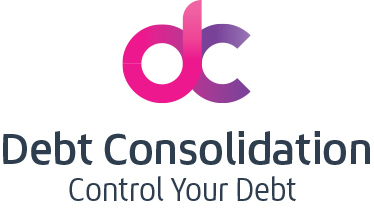When it comes to debt and the best way to manage it, there is a lot of conflicting advice out there. Finding yourself in a position of debt can be stressful and all-consuming. Debt consolidation and debt settlement are two different approaches you can take to managing your debt and getting yourself back on track financially. It is about finding what is right for you and your circumstances, and this decision is much easier if you are armed with the right knowledge. So what exactly is the difference between debt consolidation and debt settlement?
Debt Consolidation
This is the process of combining all your different debts into one single debt that you can pay off over time. Multiple loans are all rolled into the one loan with the one interest rate and one monthly payment. This simplified process to paying off loans can making managing debt much easier. Instead of managing competing loans and interest rates, as well as keeping track of what needs to be paid off and when, having everything in the one place has some great psychological benefits.
Consolidation loans often require an asset offered up as collateral to secure it. This means if you default on payments, your asset can be seized and taken as payment. Debt consolidation isn’t without it risks, but it can be just what you need to get a handle of your debts.
Debt Settlement
Debt settlement on the other hand is aimed at negotiations with your creditors in an attempt to reach an agreement that allows you to pay back less than you currently owe. This is usually a long, drawn out process, as a settlement isn’t always reached straight away. It can take time for these negotiations to take place. The process involves reaching out to a debt settlement agency to handle the negotiations for you. Of course, creditors don’t have to even enter these negotiations with you in the first place, meaning it isn’t a road that everyone can take.
Just like debt consolidation, debt settlement comes with its own set of risks. It can negatively affect your credit score, as many debt settlement agencies advise you to stop paying off your debt until you can reach an agreement. There is also a lot of scams out there, so you need to make sure you do your research before choosing a company.
So now that we know the difference between debt consolidation and debt settlement, when should each one be used?
The Diference Between Debt Consolidation and Debt Settlement
Debt consolidation and debt settlement function very differently when it comes to easing the load of your debt and they are used for different purposes. Depending on your financial situation, you will find one more beneficial than the other.
If you are still in a position to pay off your current debts, but are struggling to make these payments because they are spread out across multiple lenders, then debt consolidation is your best option. It carries less risks than debt settlement, and has many benefits in helping put all your repayments in one spot to pay off over time. Having one monthly payment simplifies the process and can make it much easier to pay off your debt over time. Of course, you still need to weigh up the risks that come with this and whether you are comfortable offering up an asset against your loan. Weigh this up against the benefits for you before making your decision.
On the other hand, if your debts are too high and you aren’t managing to make the repayments, then it may be worth looking into debt settlement. While the benefits of having less to pay back are obvious, it does of course come with many risks. Once again it is worth weighing up whether it is right for you based on your individual circumstances. There is a risk of incurring further debt when you stop paying you loans and interest piles up. This could also negatively impact your credit score and prevent you from taking out future loans. You will also be paying your debt agency, with no guarantee that they will be able to reduce your loan, so you could end up paying more.
As you can see there is a huge difference between debt consolidation and debt settlement, and it is about choosing which one is best for your circumstances and weighing up the risk involved.
Still Stuck?
If you are looking for help in this decision, consider the experts at Debt Consolidation. They can talk you through the best option for you and your circumstances and put you on the right track to getting yourself debt free.

